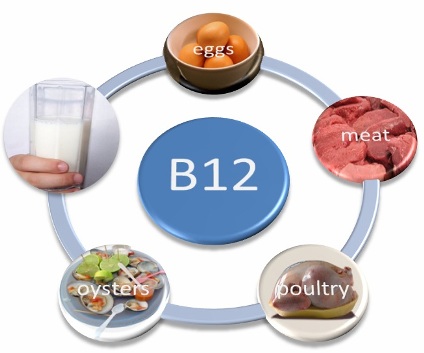Vitamin B12: Where it is and why does it used for
Vitamin B12 is one of the most important in the family of these basic nutrients. What it is? What is its function? And, above all, where it is found?
Vitamin B12 was discovered relatively recently. In fact, it was not until 1956 when the structure was revealed as a result of a research study of pernicious anemia, a type of anemia specifically caused by the difficulties of the body to absorb vitamin B12, resulting in impaired maturation of red blood cells or erythrocytes. This type of anemia is usually associated with greater feelings of fatigue, memory loss and cognitive disorders.
The power is essential to prevent a lack of vitamins, in this case vitamin B12, a deficiency that has been linked mainly with vegetarian and vegan diets, the lack of meat in the diet, which forces them to seek surrogates. What kinds of foods contain this vitamin and favor its absorption? Let’s see which a must in our diet are.
Foods with vitamin B12
Foods containing vitamin B12 are especially those of animal origin, with the meat which contains the highest amount. And among them, the first place is the sheep liver (contains about 90 micrograms of vitamin B12 in a hundred grams of product), followed by other types of meat such as beef, chicken or turkey. But there are also fish such as mackerel, salmon, octopus, mussels and oysters reporting this vitamin.
Other foods that contain vitamin B12 (although in much lower amounts than meat), animal derivatives and, in general, are also included in the vegan diet are eggs (chicken, goose, duck), the cheese (Parmesan, mozzarella, pecorino, and many others), milk and yogurt, which contains small amounts.
The experts in diet and nutrition insist on how important it is to follow a balanced diet to avoid deficiency of certain nutrients. Deficiency in vitamin B12 occurs naturally, not get the recommended amounts in the daily diet. The form of this vitamin to enter the body is through food or through supplements.
Importance of Vitamin B12 for health
Vitamin B12 plays a vital role in health. Thus, it is important for the metabolism of cells, especially blood cells and the nervous system. Therefore, the deficit of this vitamin is linked to serious problems with anemia (macrocytic or megaloblastic). In addition, too low levels of this vitamin cause the accumulation of an amino acid produced by the body, homocysteine. The excessive accumulation of homocysteine in the blood can cause damage to the arteries and increase the risk of blood vessel blockage. Risk factors for cardiovascular problems (heart attacks, thrombotic stroke, vascular thrombosis…).
Symptoms of lack of vitamin B12
Symptoms that warn of the lack of this vitamin are feeling fatigue or constant tiredness, difficulty in walking, anxiety, stuttering, increased sensitivity to cold, headache, palpitations, dizziness and shortness of breath. Once symptoms are identified and diagnosed the problem, the doctor will be the one that we recommend the most appropriate treatment to prevent, inter alia, the anemia.
